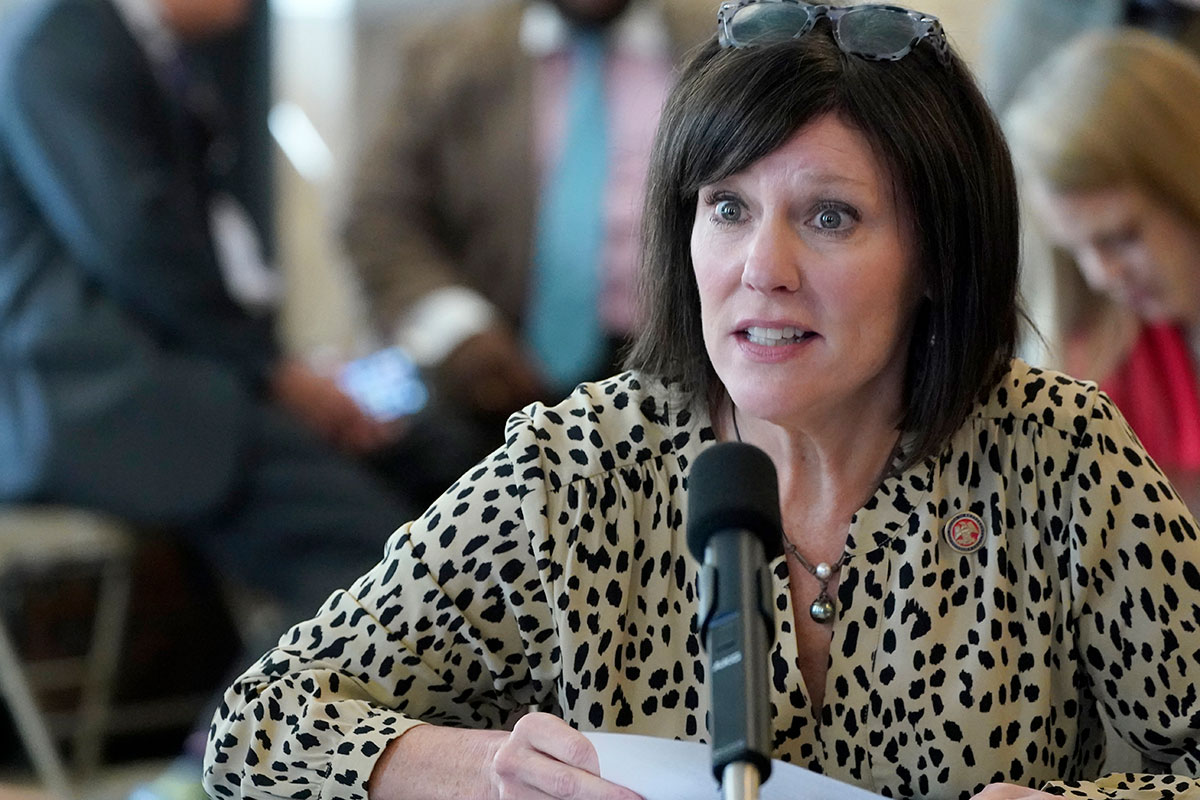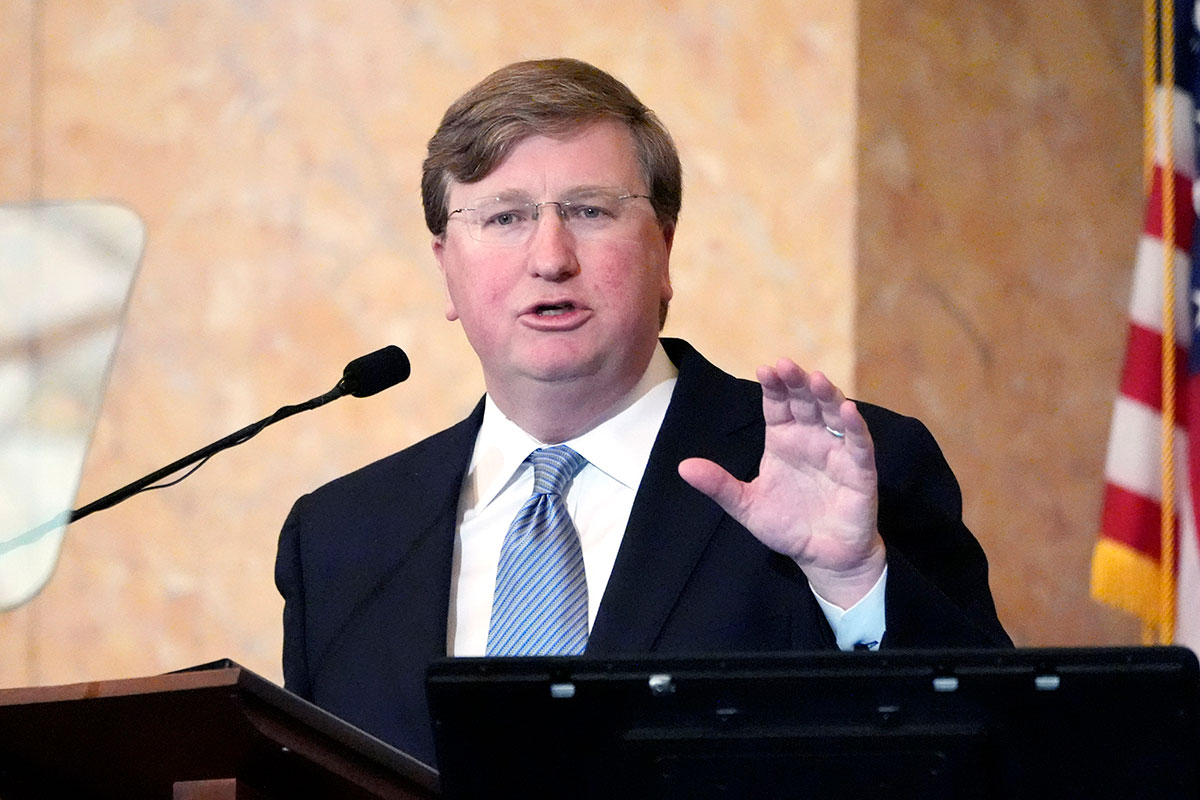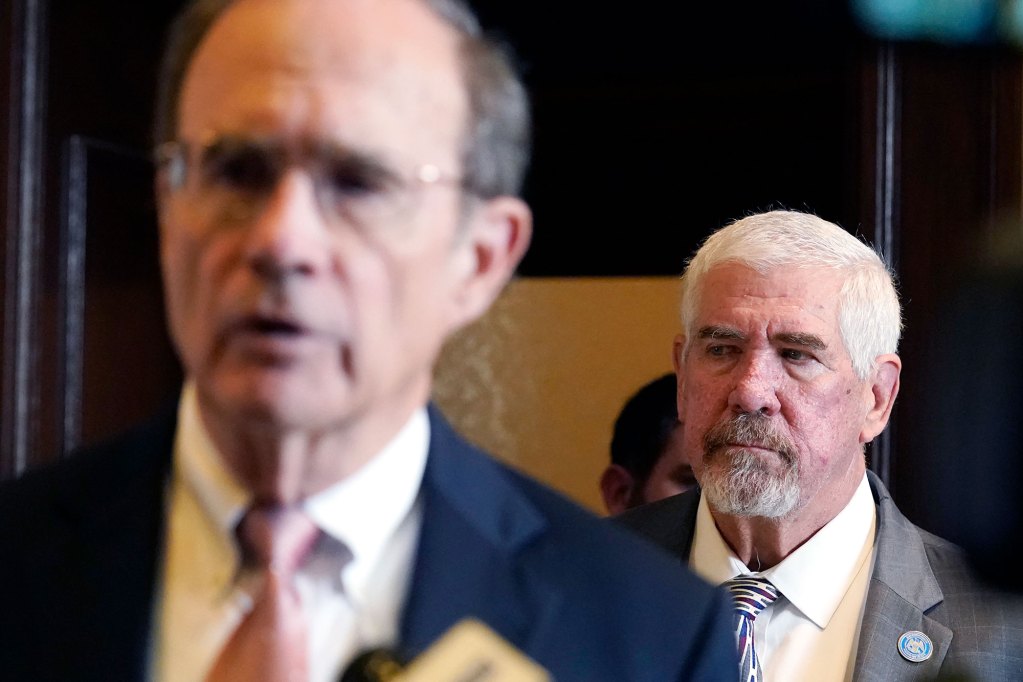Mississippians would have to work 100 hours a month to be eligible for Medicaid expansion under a new compromise plan House and Senate members agreed to minutes before a deadline on Monday evening. But there is no guarantee any Mississippians would benefit even if the bill does become law.
House leaders had opposed the Senate’s strict work requirement because it would prevent Medicaid expansion from taking effect unless the federal government approves the kind of work-requirement waiver that it has rejected in the past. But House lawmakers gave in and agreed to the Senate’s latest proposal minutes before an 8 p.m. deadline on Monday night.
“A compromise requires concessions between the chambers. The Senate requires a real work requirement, but our plan now covers individuals up to 138 percent of the federal poverty level,” Lt. Governor Delbert Hosemann said in a Monday press release. “This is a good step which would cover thousands more Mississippians than our Medicaid program covers now—and we hope the House will sign on to give us the opportunity to vote on the bill.”
The Senate’s original plan only covered individuals up to 100% of the federal poverty level and required people to work 120 hours per month to be eligible. Under the proposal, the U.S. Centers for Medicare and Medicaid Services must approve the work requirement for Medicaid expansion to become law in Mississippi. President Joe Biden’s administration has denied work requirement waivers in other states.
Blackwell: Expansion May Depend on Trump Winning
Senate Medicaid Committee Chairman Sen. Kevin Blackwell, R-Southaven, told the Mississippi Free Press last week that CMS has a better chance of approving a work requirement waiver if Donald Trump wins the presidential election in November.
“Based upon the timing of all this, we may have a different president, and I believe work requirements won’t be an issue,” the Republican chairman said on April 26.
Under the new compromise plan, if CMS denies the waiver, the state could reapply later if CMS changed course and approved another state’s work requirement. The previous Senate compromise plan called for Attorney General Lynn Fitch to appeal the waiver in federal court if CMS denies it.

Trump is currently facing 88 felony criminal indictments across four jurisdictions, including state charges in New York and Georgia and federal charges in Florida and Washington, D.C. The ex-president is currently on trial in New York over hush-money payments made during the 2016 election while a federal trial in the nation’s capital over his plot to overthrow the 2020 election awaits a U.S. Supreme Court ruling on his claims of presidential immunity from prosecution.
Despite the indicted ex-president’s administration previously approving Medicaid expansion work requirements, he has repeatedly pledged to repeal former President Barack Obama’s 2010 Patient Protection and Affordable Care Act—the federal law that makes Medicaid expansion possible. During Trump’s presidency, the Republican-led U.S. Senate narrowly failed to repeal the ACA after Republican U.S. Sen. John McCain of Arizona voted against the effort.
In January 2024, Trump again said he would repeal and replace “Obamacare” if he wins the presidential election. But last month, he claimed it was a lie to say he wanted to get rid of the ACA in a social media post. “I’m not running to terminate the ACA, AS CROOKED JOE BUDEN DISINFORMATES AND MISINFORMATES ALL THE TIME,” he claimed in a post on his social network, Truth Social, on March 26.
House Opposed Tethering Expansion to Waiver
The plan the Mississippi House passed in February included a work requirement of 20 hours a week, but House Medicaid Committee Chairwoman Rep. Missy McGee, R-Hattiesburg, said that her chamber’s bill would still have become law even if CMS denied a waiver.
“In our bill, we have a work requirement in the first section,” McGee said in an April 23 Medicaid expansion conference meeting with House and Senate conferees, including Blackwell. “But we are not willing to hold back 80% of the hard-working Mississippians because we fear that maybe a small percentage somehow may game the system.”

The House’s proposal said Mississippians making up to 138% of the federal poverty line could gain Medicaid coverage under the Affordable Care Act, estimating that up to 200,000 people could join the program.
The Senate’s original plan would only have covered people making up to 100% of the federal poverty level, and Sen. Blackwell previously estimated that it would only have covered between 40,000 to 80,000 people.
Like the original House proposal, the Senate-proposed compromise plan that the House ultimately accepted would cover those making up to $20,120 for an individual or $43,056 for a family of four.
Gov. Tate Reeves Still Opposes Expansion
Gov. Tate Reeves continues to vehemently oppose Medicaid expansion and called on Republican leaders to vote against expansion in a Tuesday morning tweet.
“I urge the true Republicans in the Legislature to vote NO on Obamacare Medicaid expansion in Mississippi,” he said, referring to the fact that former President Barack Obama’s 2010 Patient Protection and Affordable Care Act made Medicaid expansion possible. “Voting yes goes against the principles of our party and the tried and true economic principles that built the greatest country in the history of mankind.”

If the governor vetoes expansion, the House and Senate could override his veto with a two-thirds majority vote in both chambers.
Both the House and Senate passed their original versions of Medicaid expansion with more than two-thirds of members in favor, with a 99-20 vote in the House on Feb. 28 and a 36-16 vote in the Senate on March 28.










